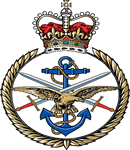Commemorated: | |||
| 1. Memorial: | Helles Memorial | Panel 2 to 7. | |
| 2. Book: | The (1921) Masonic Roll of Honour 1914-1918 | Pg.134 | |
| 3. Memorial: | The (1940) Scroll - WW1 Roll of Honour | 47B GQS | |
Awards & Titles: | |||
Family :
Brother of William Scougall, of Peebles.Service Life:
Campaigns:
- The Second Anglo-Boer War 1899-1902, South Africa.
- The First World War 1914-1918, World-wide.
| Unit / Ship / Est.: Chatham Bn. R.N. Div |
| Action : Gallipoli |
The Gallipoli Campaign was fought on the Gallipoli peninsula 25th April 1915 to 9th January 1916. in a failed attempt to defeat Turkey by seizing the Dardanelles and capturing Istanbul. Ill-conceived and planned, the initial effort by the Royal Navy failed to force passage through the Dardanelles by sea power alone. It was then realised that a land force was needed to support the project by suppressing the Turkish mobile artillery batteries. By the time all was ready the Turks were well aware and well prepared. Despite amazing heroics on the day of the landings only minor beachheads were achieved and over the succeeding 8 months little progress was made. Eventually the beachheads were evacuated in a series of successful ruses.
Despite Gallipoli rightly becoming a national source of pride to Australians and New Zealanders, far more British casualties were sustained, and these days the substantial French contribution is almost forgotten.
Detail :
ALEXANDER SCOUGALL COLOUR SERGEANT, ROYAL MARINE LIGHT INFANTRY Alexander Scougall was the 3rd son of the late George Scougall, of Peebles was born at Woodhouse, Manor Parish, Peebles on the 25th May, 1873. He was educated at Manor, Walkerburn, and Peebles Public Schools. He joined the Royal Marine L.I. at Edinburgh in November 1890 and served in the Orinoco River (in H.M.S. Fantoine) during the dispute between the United States and Venezuela; in the South African War (medal), and in China, and on completing his 22 years' service (Oct. 1912) entered the Shanghai Municipal Council's Service. When the European War broke out he was an Inspector in the Shanghai Public Works Department, and immediately volunteered, but was not accepted until October. He left within 24 hours for London, but the Japanese boat by which he travelled took 65 days to do the trip (12,000 miles), being held up in the Indian Ocean for 10 days by the German Cruiser Emden. He took part in the landing at the Dardanelles, 25 April. 1915 and was killed in action at Quinn's Post, Gaba Tepe, between 9 and 10 a.m. on 3rd May 1915. A comrade wrote: Colour-Sergeant Scougall was an old pal of mine also, he being of about the same service as myself. He was well known at Chatham and we all regret his loss, and he is one of many veterans of ours who have gone. He was killed on Monday 3rd May, between 9 and 10 a.m. The shot entered his eye and death was immediate. Bugler Sillence of our Battalion was a few yards from him when he was hit, and I have gone over the day with him. We were ordered out at 4 a.m. to prepare an attack up a very steep ravine between two hills - the Turks held all the crests. It was hopeless to carry out. As soon as our troops got in view they were mowed down with M.G. and rifle fire, it was awful time after time fresh troops went on but all suffered the same, nobody got to the objective, and we had to give it up. Our Battalion had over 300 casualties, all who tried suffered the same; the dead and wounded had to be left till dark. The wounded were got down by degrees; it took days to bury the dead. Every movement brought a deadly fire - they were within a 100 yards. This happened at Gaba Tepe - where we reinforced the Australians and New Zealand forces on their first landing; we afterwards were shipped to this end Sedh-ul-Bahr, and are having some tough work still. I expect we are in for a winter of it. Trench fighting is awful slow work, and you are kept on a tension all the time; the devils have plenty of grit and put up a fair fight, no gas or gas shells at present and no white Flag incidents since the first, when we weren't having any, and nipped them all. About the difference in date, many of the dead were not buried by our own people, and their effects are not gathered properly. They are reported missing until their bodies are found and identity discs are sent in; facts known to people near one get mixed or reported wrongly because it is impossible to thoroughly enquire into every case unless a doubt is raised. Dead often have to be left even for weeks when an attack fails. You may take my date as correct it is the date in my book, also in the Battalion records. 1 don't know when the other date came from, we had re-embarked and started afresh elsewhere before then so it is obviously incorrect. 1 am an old China bird myself, but I came home in 1897, And another: He was killed on 3rd May at Quinn's Post Gaba Tepe where the Australians landed, and buried in a little trench with others of his comrades. You see he was some 300 to 400 feet up the cliffs, and it was practically useless bringing the dead down in the gully where we had to depend on water running, he was accorded a Christian burial, and a very decent one considering the time and space allotted. I myself buried 14 in one grave, and read the Burial Service. Scougall held the Long Service and Good Conduct medals He was a good all-round sportsman, played cricket and football, and was in the winning tug-of-war team in Shorncliffe District Tournament in 1897.
Masonic :
| Type | Lodge Name and No. | Province/District : |
|---|---|---|
| Mother : | Lord Charles Beresford No. 2404 E.C. | East Kent |
| Joined : | Daintree No. 2938 E.C. | Hampshire & IOW |
| Joined : | Per Mare per Terram No. 3609 E.C. | East Kent |
Initiated | Passed | Raised |
18th August 1900 | 27th August 1900 | 24th September 1900 |
Alexander was initiated in 1900 into Lord Charles Beresford Lodge No. 2404 most when he was listed aboard HMS Sappho as a 26 year old sergeant of the Royal Marines. He remained a member until he "Resigned 31 December 1912." He had already joined Daintree Lodge at Liu Kung Tao, Northern China in 1910, so unsurprising as a military man that he let his membership lapse in England. He was 10 years older but only progressed on rank up to Colour Sergeant. He is resident at Wei Lai Wei. He allowed his membership to lapse in Daintree as his previous lodge, showing a resignation at the close of 1912. After two years in China, he was back in the UK as a Colour Sergeant still quoting his address as Wei Lai Wei, but taking his masonic membership to the newly formed Per Mare Per Terram Lodge No. 3609, becoming a joining member 11th September, 1912. He also resigned this lodge prior to the great war, in September 1913, and so appears not to have been a subscribing member of any lodge during the war years.
Source :
The project globally acknowledges the following as sources of information for research across the whole database:
- The Commonwealth War Graves Commission
- The (UK) National Archives
- Ancestry.co.uk - Genealogy, Family Trees & Family History online
- ugle.org.uk - The records of the United Grand Lodge of England including the Library and Museum of Freemasonry
Additional Source:
- Founder Researchers : Paul Masters & Mike McCarthy
- Researcher : Bruce Littley

